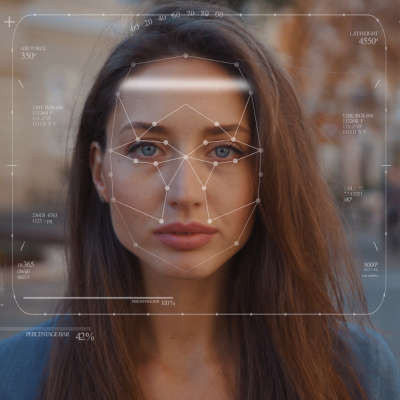Directive Blogs
Pros and Cons of Biometric Security
A lot has been made about biometric authentication over the past decade, so much so that it has been loosely integrated into a lot of the access control mechanisms on most modern mobile devices. Fingerprint scanners, retina scanners, and facial recognition are all part of the transition to biometrics to enhance security and privacy. For modern businesses, however, implementing biometrics can have some major drawbacks. Today, we will go over the pros and cons of biometric authentication.
For those who aren’t familiar with biometrics, they are the measurement and analysis of an individual's physiological or behavioral traits by technology that uses these measurements for authentication. Physiological biometrics are things such as a person’s fingerprints, face shape, eye patterns, or hand shape. Behavioral biometrics include a person’s online behavior, the IP addresses they send and receive information from, voice recognition, and other “behaviors”.
The Pros of Biometric Authentication
The first thing that should be said is that biometric authentication is all about enhancing security, whether that is a fingerprint scanner to let you access a device or a state-of-the-art retina scanner to let you into a secure location in a building. As far as keeping unauthorized people out, it has to be said that biometrics work.
That’s the first benefit.
Biometrics Work for Security
They provide enhanced levels of security and privacy by increasing levels of assurance that the person looking for access is the person they say they are. Most accounts use passwords and PINs, and while they do offer some security benefits, biometrics present very real obstacles for hackers, scammers, and fraudsters.
Fast and Convenient
Another benefit is the sheer speed of biometric systems. They don’t take long for authentication as compared with other platforms such as pins and passwords with two-factor authentication that can take minutes rather than less-than-a-second to work.
Can’t Fake It
One of the best parts of biometric authentication is that users can’t fake it. They will need authorization to gain access to the resources they are attempting to gain access to. Period.
The Cons of Biometric Authentication
Like any technology, businesses need to weigh the pros and cons of installing biometric technology. Despite being spoof-proof faster, and better at keeping out unauthorized people, there are some negatives that biometric implementation can bring. They include:
Cost
To say biometrics are more costly than traditional security methods is an understatement. In fact, if they were a comparable price and brought a relatively rapid ROI, you would see more businesses integrating biometric solutions. As it is, cost is cited as the number one detriment to biometric authentication.
Need for Security
Ironically, the most secure solution for authentication also carries the need for additional security. The biometric data that is used needs to be secured from outside threats as it is irreplaceable. If it were, it wouldn’t work to be secure. If a password or a PIN is compromised then you can change it, but if biometric identifiers are compromised, they are not usable again.
Lack of Privacy
Some biometric standards actually work to eliminate or marginalize user privacy to enhance the security of whatever is being secured. This has long been a trade off that people have had to make, but with biometric technology, privacy is all but negated.
Whatever you may think about biometric technology, it is the future of security. If you would like to talk to one of our security professionals about biometrics and getting the security solutions you need to protect your most prized assets, call us today at 607.433.2200.


